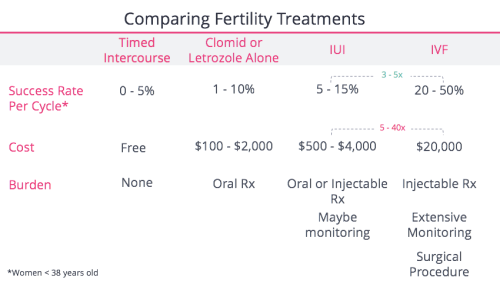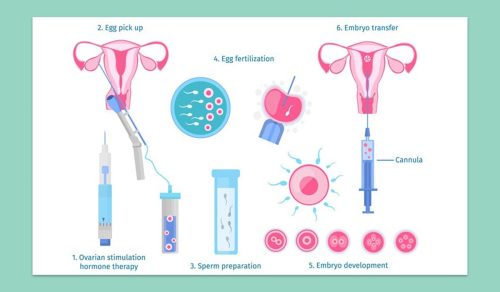Does Blue Cross Blue Shield Insurance Cover IVF?
When you’re dreaming of starting a family, the journey can feel overwhelming—especially if fertility treatments like in vitro fertilization (IVF) are part of the picture. IVF is a big step, both emotionally and financially, and one of the first questions that pops up is: “Will my insurance help cover this?” If you’re insured with Blue Cross Blue Shield (BCBS), you’re not alone in wondering about your options. BCBS is one of the biggest names in health insurance across the U.S., but the answer to whether it covers IVF isn’t a simple yes or no. It depends on a lot of factors—like where you live, your specific plan, and even your employer. Let’s dive into everything you need to know about BCBS and IVF coverage, with some fresh insights and practical tips to guide you along the way.
What Is IVF and Why Does Insurance Matter?
IVF is a fertility treatment where eggs are retrieved from the ovaries, fertilized with sperm in a lab, and then transferred into the uterus. It’s often a lifeline for people facing infertility, but it comes with a hefty price tag. On average, one IVF cycle costs between $12,000 and $15,000, not including medications, which can add another $3,000 to $5,000. For many, that’s a huge financial hurdle—imagine saving up for a car, only to realize you might need to buy two or three to get where you’re going.
Insurance can make a world of difference here. If BCBS covers even part of the cost, it could turn a daunting expense into something manageable. But BCBS isn’t one single company—it’s a network of 33 independent companies operating in different states. That means coverage varies widely, and what’s available in Texas might not apply in Michigan. So, how do you figure out if your BCBS plan has your back? Let’s break it down.
Does Blue Cross Blue Shield Cover IVF? The Basics
The short answer: it depends. BCBS offers a range of plans—some include IVF coverage, some don’t, and others fall somewhere in between. Here’s what shapes the answer:
- Your State: Some states, like Illinois and Massachusetts, have laws requiring insurance plans to cover infertility treatments, including IVF. If you live in one of these “mandate states,” your BCBS plan is more likely to offer coverage.
- Your Plan Type: Are you on an individual plan from the Affordable Care Act (ACA) marketplace, or do you have employer-sponsored insurance? Employer plans often have more flexibility and might include IVF benefits, especially if your company opts in.
- Federal Employees: If you’re a federal worker with the BCBS Federal Employee Program (FEP), you’ve got some promising options—more on that later.
In 2025, BCBS has been expanding fertility benefits in response to growing demand, but it’s not universal. For example, the BCBS Federal Employee Program recently boosted its IVF coverage, offering up to $25,000 annually for certain plans. Meanwhile, in states without mandates, you might find limited or no coverage unless your employer negotiates it into the plan.
A Quick Reality Check
✔️ Good News: If your plan covers IVF, it might pay for part of the procedure, medications, or both.
❌ Not So Great: Even with coverage, there are often limits—like a cap on the number of cycles or a lifetime maximum dollar amount.
To get the real scoop, grab your insurance card and call the number on the back. Ask: “Does my plan cover IVF, and if so, what’s included?” It’s the fastest way to cut through the noise.
How State Laws Shape Your Coverage
Where you live plays a huge role in what BCBS offers. As of April 2025, 21 states plus Washington, D.C., have some form of infertility insurance mandate. These laws require certain plans to cover treatments like IVF, but the details differ. Here’s a snapshot:
| State | IVF Coverage Mandate? | What’s Covered? |
|---|---|---|
| Illinois | Yes | Up to 4 egg retrievals, depending on plan |
| Massachusetts | Yes | Comprehensive IVF, no cycle limit |
| Texas | No | Coverage optional, varies by employer |
| California | Partial | Fertility diagnosis, but IVF not required |
If you’re in a mandate state, BCBS plans sold there usually have to comply. For example, Blue Cross Blue Shield of Illinois often covers IVF under HMO or PPO plans, including medications like progesterone. But in a non-mandate state like Florida, you’re at the mercy of your specific policy. This patchwork system can feel unfair—why should your zip code decide your options?—but it’s the reality of U.S. healthcare.
What If You’re in a Non-Mandate State?
Don’t lose hope. Some employers in these states choose to add IVF coverage to attract talent. Tech companies and big corporations are especially likely to offer it. Check with your HR department to see if your BCBS plan includes this perk.
Federal Employees: A Bright Spot for IVF Coverage
If you’re a federal employee enrolled in the BCBS Federal Employee Program (FEP), you’re in luck. In 2025, FEP has stepped up its game. Two nationwide plans—BCBS Standard Option and GEHA—now offer “comprehensive” IVF coverage with a $25,000 annual benefit. That’s enough to cover one full cycle for most people, including meds and lab work.
Here’s what’s included:
- Up to 3 drug cycles per year for IVF if you’re diagnosed with infertility.
- One year of sperm and egg storage for iatrogenic infertility (caused by medical treatments like chemotherapy).
- Prior approval is required, so plan ahead.
This expansion came after negotiations by the Office of Personnel Management (OPM), reflecting a push to support family-building for federal workers. If you’re eligible, Open Season (November 11 to December 9, 2025) is your chance to switch to a plan with these benefits.
Pro Tip
Call FEP at 1-800-411-BLUE to confirm your coverage details. Ask about pre-approval steps—missing this could leave you footing the bill.
What’s Typically Covered (and What’s Not)?
Even when BCBS covers IVF, it’s rarely a blank check. Plans often specify what’s included and set limits. Here’s a breakdown based on common BCBS policies in 2025:
Covered:
- Egg retrieval and fertilization: The core IVF process.
- Embryo transfer: Placing the embryo in the uterus.
- Medications: Sometimes fully covered, sometimes partial (e.g., 50% after a deductible).
- Diagnostic tests: Like bloodwork or ultrasounds to assess infertility.
Not Covered (Usually):
- Preimplantation Genetic Testing (PGT): Screening embryos for genetic issues—often an out-of-pocket add-on costing $3,000-$5,000.
- Cryopreservation: Freezing extra embryos might not be included beyond a set time (e.g., one year).
- Surrogacy: Most plans exclude costs for gestational carriers.
For example, CareFirst BCBS in Maryland added IVF coverage in 2025 at 50% of the plan allowance, with a $45,000 annual cap and a 3-cycle limit per live birth. That’s generous, but you’d still pay thousands upfront depending on your deductible.
Interactive Quiz: What Might Your Out-of-Pocket Costs Be?
Answer these quick questions to estimate:
- Does your state mandate IVF coverage? (Yes/No)
- Is your deductible over $1,500? (Yes/No)
- Does your plan cap IVF benefits? (Yes/No)
- Mostly Yes: Expect $5,000-$10,000 out of pocket per cycle.
- Mixed: Around $2,000-$5,000, depending on specifics.
- Mostly No: You might pay $1,000 or less with good coverage.
This is just a rough guide—your actual costs hinge on your plan’s fine print.
How to Maximize Your BCBS IVF Benefits
Finding out you have IVF coverage is exciting, but using it smartly takes some planning. Here’s how to get the most out of your BCBS plan:
- Read Your Benefit Booklet: Log into your BCBS account (e.g., Blue Connect for Blue Cross NC) and find the “Family Planning” or “Infertility Services” section. It’ll list what’s covered and any limits.
- Get Pre-Approval: Many plans require this before starting IVF. Call BCBS and ask what paperwork your doctor needs to submit.
- Ask About Meds: Fertility drugs can cost as much as the procedure. See if generics (cheaper) are covered instead of brand-name options.
- Appeal Denials: If BCBS says no, don’t give up. Submit an appeal with your doctor’s help—success rates are higher than you’d think, especially in mandate states.
- Time It Right: Some plans reset benefits annually. Starting a cycle in late December could let you use two years’ worth of coverage.
Real-Life Example
Sarah, a 34-year-old teacher in Illinois, had BCBS PPO through her school district. Her plan covered 4 IVF cycles, but only after a $2,000 deductible. She worked with her clinic to schedule tests in December and the retrieval in January, splitting costs across two plan years. It saved her $1,500 out of pocket.
The Emotional Side: Coping When Coverage Falls Short
Let’s be real—figuring out insurance is stressful, and infertility adds another layer of heartache. If BCBS doesn’t cover IVF, or the costs still feel out of reach, it’s okay to feel disappointed. But there are ways to keep moving forward:
- Financing Options: Clinics often partner with lenders like Prosper Healthcare Lending for low-interest loans tailored to IVF.
- Grants: Organizations like Baby Quest Foundation offer financial help for fertility treatments.
- Employer Advocacy: Talk to HR about adding IVF benefits. Companies are increasingly open to this as a perk.
Trending on X lately, people are sharing how they’ve navigated these gaps—some even crowdsource ideas from others in the same boat. It’s a reminder you’re not alone in this.
New in 2025: Trends and Updates to Watch
IVF coverage is evolving fast, and 2025 has brought some game-changers with BCBS. Here’s what’s fresh:
1. Expanded Federal Benefits
As mentioned, FEP’s $25,000 IVF benefit is a big deal. It’s part of a broader push by the Biden-Harris administration to support reproductive rights, with 45 plan options across 25 carriers now offering above-baseline IVF coverage.
2. Employer Push
More companies are pressuring BCBS to include IVF in their plans. A 2024 Mercer survey found 45% of large employers now offer fertility benefits, up from 36% in 2020. If your workplace doesn’t yet, 2026 could be the year to ask.
3. Medication Costs Dropping
Generic fertility drugs are becoming more common, cutting costs by 20-30% in some cases. BCBS plans in states like Michigan are starting to cover these generics more generously, easing the burden.
Original Insight: The Hidden Cost of Delays
Here’s something not talked about enough: waiting to confirm coverage can cost you time—and fertility declines with age. A 2023 study in Fertility and Sterility found women who delayed IVF by just one year after age 35 saw a 10% drop in success rates. If BCBS is dragging its feet, consider starting with diagnostic tests (often covered) while you sort out the rest.
Beyond IVF: Other Fertility Options with BCBS
IVF isn’t the only path to parenthood, and BCBS often covers alternatives that might work for you:
- Intrauterine Insemination (IUI): Less invasive and cheaper ($500-$1,000 per cycle), IUI is covered by many BCBS plans, especially in mandate states.
- Fertility Drugs: Clomid or letrozole might be enough to kickstart ovulation, and they’re often fully covered.
- Surgery: If infertility stems from something like endometriosis, corrective procedures might be included.
Talk to your doctor about what fits your situation. Sometimes a simpler step gets you there without the IVF price tag.
Poll: What’s Your Next Step?
What are you exploring after reading this?
- A) Calling BCBS to check my coverage
- B) Talking to my employer about benefits
- C) Looking into financing or grants
- D) Other (share in your mind!)
Your answer might spark your next move.
The Bigger Picture: Why IVF Coverage Matters
Infertility affects 1 in 5 women in the U.S., according to the CDC, and access to treatment shouldn’t be a luxury. Yet, insurance gaps leave many stuck. BCBS covering IVF—or not—can shape your family’s future. It’s why advocacy groups are pushing bills like the Right to IVF Act, which could mandate coverage nationwide if passed.
On a personal level, knowing your options gives you power. Whether BCBS steps up or you find another way, you’re taking control of your story. And that’s worth celebrating.
Wrapping Up: Your Path Forward
So, does Blue Cross Blue Shield cover IVF? Maybe—check your plan, your state, and your employer to know for sure. It’s a puzzle, but the pieces are there for you to fit together. Call BCBS, dig into your benefits, and don’t be afraid to ask for help from your doctor or HR. If coverage is limited, explore financing, grants, or other treatments. You’ve got this.
The road to parenthood can be bumpy, but every step brings you closer. What’s one action you’ll take today to keep moving? Maybe it’s a phone call, a chat with your partner, or just giving yourself a moment to breathe. Whatever it is, it’s progress—and that’s what counts.




